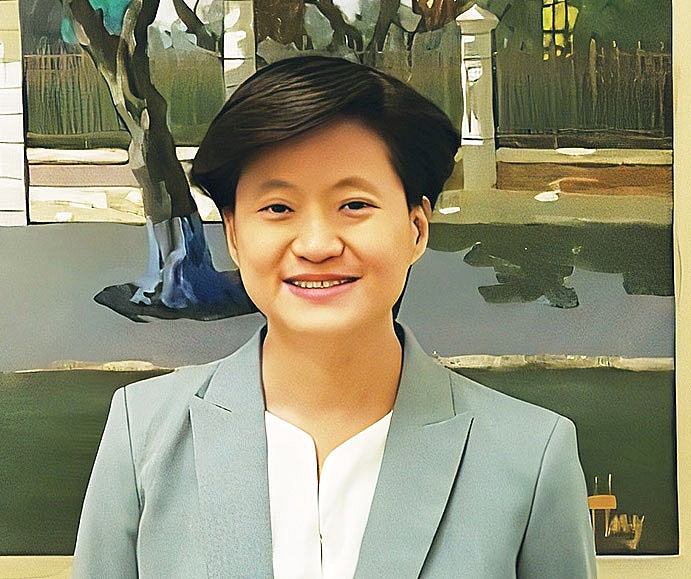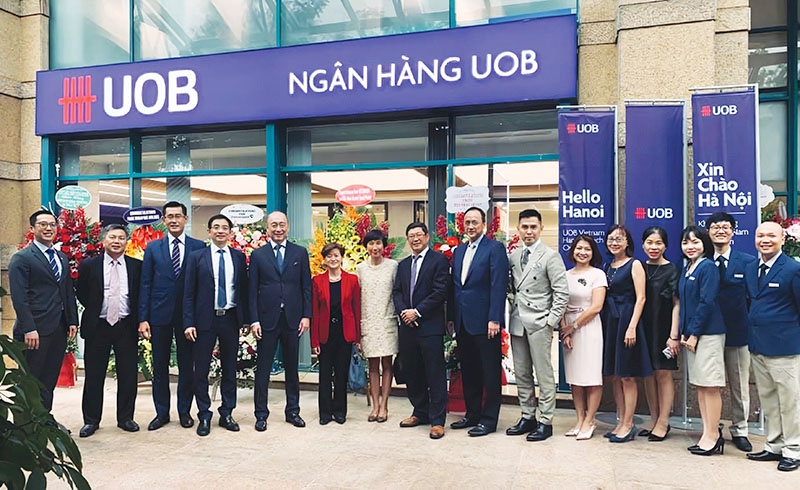Furthering developmental ties with dynamic Singapore
 |
| Singaporean Ambassador to Vietnam Catherine Wong Siow Ping |
COVID-19 continues to cause headaches globally and regionally. How has Singapore dealt with the pandemic, how have Vietnam and Singapore worked together on this issue, and how important is regional cooperation within the ASEAN in controlling the crisis?
This once-in-a-generation crisis has changed the way we live, work, and play. Following a “circuit breaker” from April 7 to June 1 with stringent restrictions on social interactions, Singapore has controlled the spread of COVID-19.
We are gradually reopening our economy and society: retail stores and restaurants have reopened while international passengers can transit through Changi Airport. At the same time, safety remains a top priority, with safe distancing requirements and restrictions on large-scale social gatherings.
A key pillar of our COVID-19 strategy is taking an active and rigorous testing approach. We are increasing our testing capacity from around 13,000 tests per day currently to 40,000 tests per day by the end of 2020. We are proactively testing population groups that are deemed vulnerable or have a higher risk of exposure to COVID-19.
While this means more cases are being detected, this enables us to identify and ringfence new cases early, thus preventing further transmission. We are also strengthening our contact tracing capabilities by leveraging on technology.
Consequently, the number of new cases in the community has declined. Most importantly, we have kept the mortality rate lower than 0.1 per cent – amongst the lowest worldwide. Through these efforts, Singapore remains a safe hub for business, investment, and trade.
We are committed to keeping our seaports and airports open and to continuing our critical role in facilitating global trade in essential goods and services. We are also looking to progressively reopen our borders with the necessary health safeguards in place.
Singapore has cooperated closely with Vietnam since the early stages of the pandemic, both bilaterally and within the ASEAN. We greatly appreciate the donations of medical equipment from Vietnamese government agencies and private organisations. To facilitate our growing trade and business links, both countries are discussing how to safely reopen borders for essential business travel in due course.
In the ASEAN, Singapore has strongly supported Vietnam’s chair role, with the aim of coordinating a regional response to the pandemic and developing an economic recovery plan. Vietnam successfully organised high-level physical and virtual meetings, such as the Special ASEAN and ASEAN+3 summits on COVID-19 and the 36th ASEAN Summit, which produced actionable plans on managing and moving forward from the crisis.
More needs to be done, and Vietnam can count on Singapore’s support.
What are the most significant points in Vietnam-Singapore economic ties since the ASEAN Community was established in 2015?
The realisation of the ASEAN Economic Community was a major milestone in the bloc’s efforts to create a highly integrated and cohesive economy. We need to continue these integration efforts for ASEAN to be an attractive partner and bring benefits to our people.
In line with this, Vietnam-Singapore economic ties have grown steadily over the years, with bilateral trade reaching $22.7 billion in 2019. Singapore is also Vietnam’s third-largest foreign investor, with cumulative investment of over $47 billion in more than 2,000 projects.
Singapore companies are increasingly interested to expand into Vietnam, with our business community recently identifying Vietnam as their top market of interest. Prior to the pandemic outbreak, tourism was also growing, with over 590,000 Vietnamese visitors to Singapore in 2019. Building on our Strategic Partnership, we will continue strengthening cooperation in traditional economic sectors while exploring new sectors.
 |
| Singaporean companies are deepening their presence in Vietnam, with UOB Vietnam opening its first branch in Hanoi last year |
Could you elaborate on these new sectors of investment?
Vietnam’s rapid development has provided new opportunities for Singaporean companies, particularly in the following sectors: firstly, infrastructure and urban solutions. Our companies are looking to partner with Vietnam to develop sustainable, smart townships.
For example, video analytics company XRVision has embarked on projects with Vietnamese companies Viettel and AIC. Singaporean companies like Sembcorp, Sunseap, and The Blue Circle are also interested in working with Vietnam to explore new energy sources, such as renewables and liquefied natural gas. For instance, Sunseap completed a 168MW solar farm project in the south-central province of Ninh Thuan in 2019, and is investing in new projects of over 350MW in Vietnam.
Secondly, innovation and startups. Singapore’s Global Innovation Alliance (GIA), which seeks to create overseas collaboration opportunities for Singapore enterprises, was launched in Ho Chi Minh City last year. The first GIA Acceleration Programme, comprising mentorship and business matching activities for Singapore and Vietnamese tech startups and small- and medium-sized enterprises, was launched in July.
Separately, NUS Enterprise, the entrepreneurial arm of the National University of Singapore, is partnering Becamex IDC Corporation to establish BLOCK71 in Ho Chi Minh City to encourage Vietnam-Singapore startup exchanges.
Beyond these initiatives, Singapore startups have shown keen interest to expand into Vietnam. For example, edutech company Aculearn’s online training platform has gained promising traction in Vietnam through successful partnerships with Vietnamese companies.
Third is e-commerce. Due to COVID-19, many businesses have moved online to supplement their sales and services. Furthermore, in May Vietnam launched the National Masterplan for E-Commerce Development, which targets e-commerce revenue to reach $35 billion and comprise 10 per cent of national retail and services earnings by 2025.
These developments have created exciting opportunities for Singapore’s companies in areas like food, retail, and leisure services. Singaporean brands are interested to tap into Vietnam’s e-commerce market to promote their products, and our fintech and logistics companies are keen to explore investment opportunities to support the growing online retail space.
And fourth is high-tech manufacturing. As Vietnam develops its national Industry 4.0 Strategy, Singaporean companies can offer local manufacturers solutions in areas like automation, robotics, additive manufacturing, and the industrial Internet of Things.
The ASEAN Smart Cities Network (ASCN), established during Singapore’s 2018 ASEAN chairmanship, has presented new opportunities for Singapore to share its Smart Nation experiences with Vietnam. How has and will the city-state work with Vietnam in this area?
The ASCN aims to facilitate cooperation in developing smart cities through sharing best practices and developing action plans, catalysing bankable projects with the private sector, and securing support from the ASEAN’s external partners. Indeed, external partners have shown growing interest to form partnerships, with countries like the United States, Australia, Japan, and South Korea establishing initiatives to engage the ASCN.
Last year, Singapore was appointed ASCN Shepherd for two years. We will work with Vietnam (as ASCN chair) to strengthen the ASCN and further develop interoperability. We support Vietnam’s ASCN priorities, such as promoting green and sustainable growth and using international investment to implement the smart city action plans, and are confident that Vietnam will make good progress in these areas.
Vietnam, as ASEAN chair, is aiming to help the region boost intra-connectivity and cooperation, especially in terms of trade and investment. What is your assessment of Vietnam’s role in this regard, and how has and will Singapore combine with Vietnam and other member states to drive the bloc forwards?
Under Vietnam’s leadership, the ASEAN has collaborated to chart the course ahead, especially in view of the pandemic. In June, the ASEAN adopted the “Hanoi Plan of Action on Strengthening ASEAN Economic Co-operation and Supply Chain Connectivity in response to the COVID-19 Pandemic”. This reflects ASEAN countries’ commitment to work closely to enable the free flow of essential goods, and keep critical infrastructure and trading routes open.
Singapore and Vietnam share a commitment to upholding free trade, supply chain connectivity and the rules-based multilateral trading system. This gives us the best chance of accelerating the regional economic recovery from the crisis.
It is important for the ASEAN to show the world that we are open for business, with a stable and integrated economy conducive for foreign investment. We therefore hope that the Regional Comprehensive Economic Partnership will be signed this year.
Singapore will continue working closely with participating countries to make it a reality. This will send a resounding message of ASEAN unity and centrality, while boosting confidence in the stability and integration of the regional economy.
What the stars mean:
★ Poor ★ ★ Promising ★★★ Good ★★★★ Very good ★★★★★ Exceptional
Related Contents
Latest News
More News
- Strengthening the core role of industry and trade (February 19, 2026 | 08:35)
- Future orientations for healthcare improvements (February 19, 2026 | 08:29)
- A cultural development pillar for the new period (February 19, 2026 | 08:22)
- Infrastructure orientations suitable for a new chapter (February 19, 2026 | 08:15)
- Innovation breakthroughs that can elevate the nation (February 19, 2026 | 08:08)
- AI leading to shift in banking roles (February 18, 2026 | 19:54)
- IFC to grant $150 million loan package for VPBank (February 13, 2026 | 09:00)
- SABECO celebrates diverse Tet Traditions (February 11, 2026 | 08:00)
- Canada backs Vietnam’s green transition with AGILE project (February 09, 2026 | 17:41)
- Canada trade minister to visit Vietnam and Singapore (February 09, 2026 | 17:37)

 Tag:
Tag:















 Mobile Version
Mobile Version